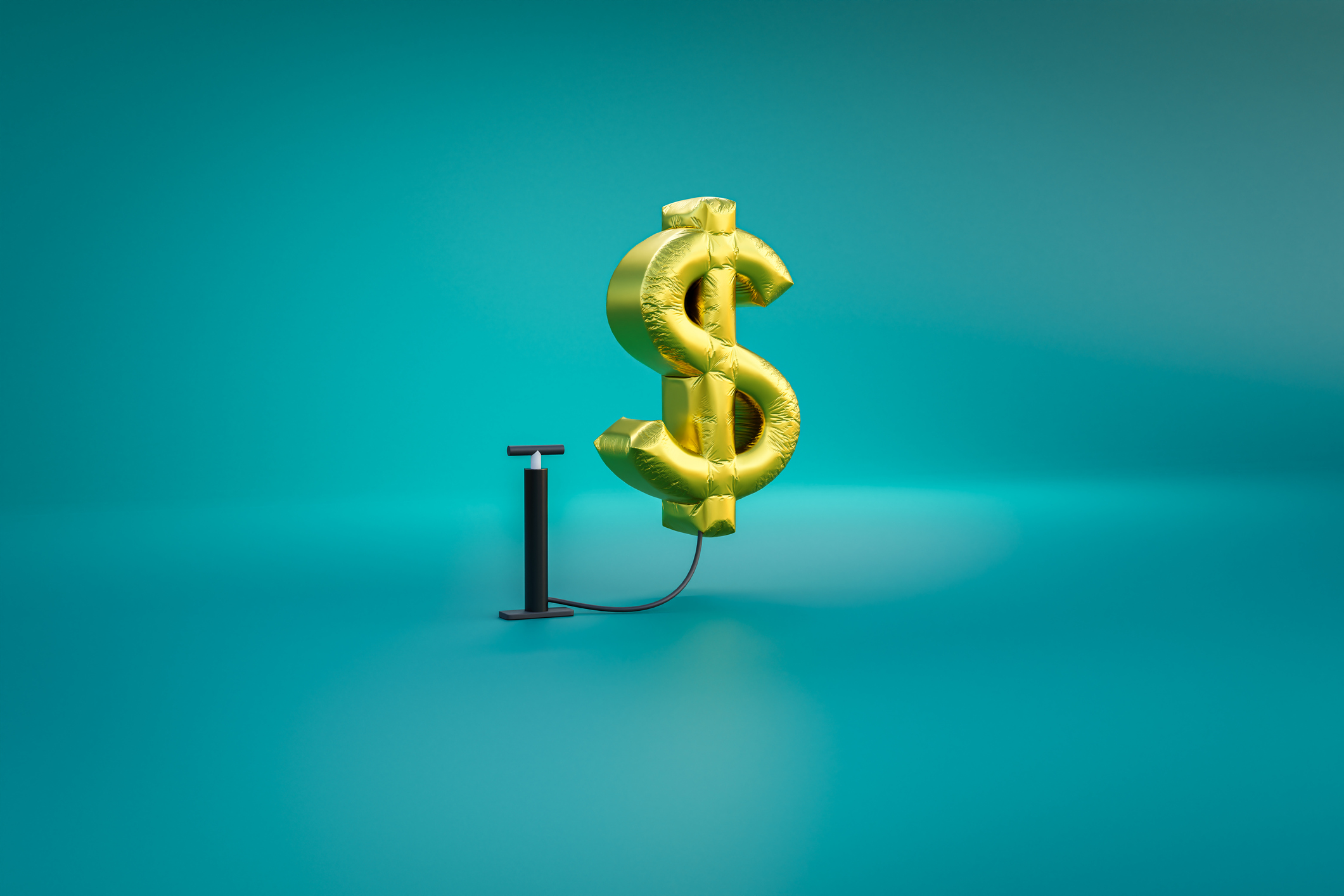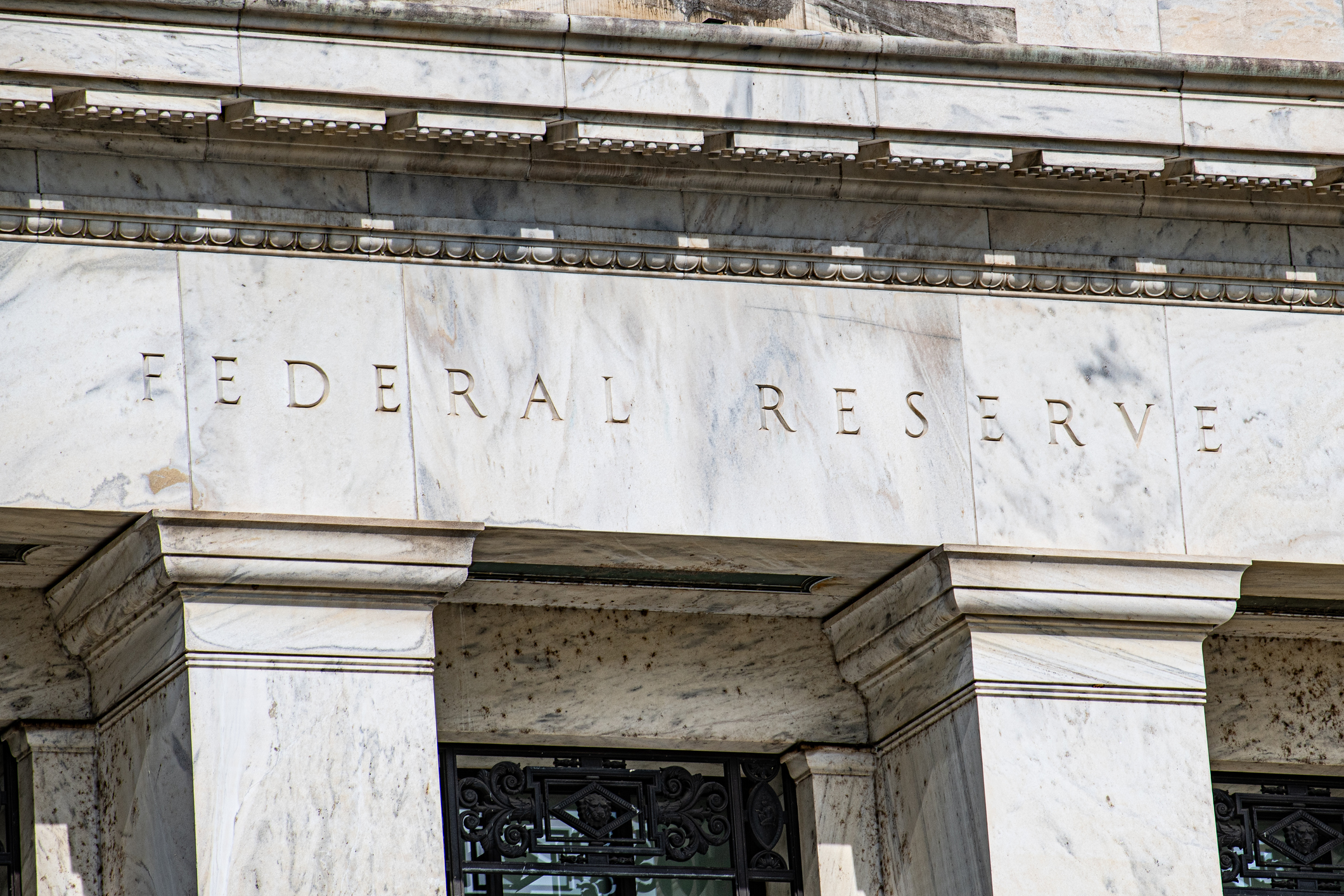Best Ways to Pay Off Every Type of Loan
Hanging on to some kinds of loans makes more sense than paying them off.

Profit and prosper with the best of Kiplinger's advice on investing, taxes, retirement, personal finance and much more. Delivered daily. Enter your email in the box and click Sign Me Up.
You are now subscribed
Your newsletter sign-up was successful
Want to add more newsletters?

Delivered daily
Kiplinger Today
Profit and prosper with the best of Kiplinger's advice on investing, taxes, retirement, personal finance and much more delivered daily. Smart money moves start here.

Sent five days a week
Kiplinger A Step Ahead
Get practical help to make better financial decisions in your everyday life, from spending to savings on top deals.

Delivered daily
Kiplinger Closing Bell
Get today's biggest financial and investing headlines delivered to your inbox every day the U.S. stock market is open.

Sent twice a week
Kiplinger Adviser Intel
Financial pros across the country share best practices and fresh tactics to preserve and grow your wealth.

Delivered weekly
Kiplinger Tax Tips
Trim your federal and state tax bills with practical tax-planning and tax-cutting strategies.

Sent twice a week
Kiplinger Retirement Tips
Your twice-a-week guide to planning and enjoying a financially secure and richly rewarding retirement

Sent bimonthly.
Kiplinger Adviser Angle
Insights for advisers, wealth managers and other financial professionals.

Sent twice a week
Kiplinger Investing Weekly
Your twice-a-week roundup of promising stocks, funds, companies and industries you should consider, ones you should avoid, and why.

Sent weekly for six weeks
Kiplinger Invest for Retirement
Your step-by-step six-part series on how to invest for retirement, from devising a successful strategy to exactly which investments to choose.
A little bit of debt can be a good thing. If you approach borrowing strategically, you can eliminate higher-interest debt that may be weighing you down, lock in low-interest loans and use the extra cash to boost your investments for retirement or contribute to an emergency fund.
Now is a particularly good time to scrutinize the debt side of your ledger. Interest rates on most kinds of loans should remain low even as the Federal Reserve continues to target higher short-term rates, which would increase payments on many variable-rate debts—notably, most credit cards and home-equity lines of credit, as well as some private student loans. Below, we've arranged the most common types of debt roughly in the order of payoff priority. Generally, if you have a FICO credit score of about 740 or 750 or higher, you’ll qualify for the best rates on any type of loan. But some lenders will offer low rates to borrowers with scores closer to 700.
Credit cards. Unless you're milking a 0%-introductory-rate offer, there's a good chance that any credit card debt you are carrying is costing you a bundle, making it a prime candidate for accelerated payments. Interest payments don't qualify for a tax deduction (except for those on expenses related to a business), and the average rate on cards that charge interest is 13.9%, according to the Federal Reserve.
From just $107.88 $24.99 for Kiplinger Personal Finance
Become a smarter, better informed investor. Subscribe from just $107.88 $24.99, plus get up to 4 Special Issues

Sign up for Kiplinger’s Free Newsletters
Profit and prosper with the best of expert advice on investing, taxes, retirement, personal finance and more - straight to your e-mail.
Profit and prosper with the best of expert advice - straight to your e-mail.
Explore ways to trim the rate, such as transferring the balance to a home-equity loan or line of credit, personal loan, or a new credit card. The Chase Slate card, for example, charges no interest for the first 15 months and levies no balance-transfer fee as long as you move the money within 60 days of opening the account. Whatever card you're considering, account for the annual fee and any balance-transfer fee (typically about 3% of the balance) before you decide whether the move will be worthwhile. If you have a limited-time low-rate offer, make a plan to pay off as much of the debt as possible before the deal expires.
Another option: Ask your issuer to lower the rate on your current card. About two-thirds of customers who did so were successful, according to a recent CreditCards.com survey.
Auto loans. The average rate on a four- or five-year bank loan for a new car was recently about 4%, according to the Fed. But in 2015 through November, nearly 10% of dealer-financed car loans had 0% interest rates, reports Edmunds.com, and Edmunds expects such offers to continue for "qualified" borrowers (often those with a credit score of about 700 or higher). If you nab a great deal on a car loan, making minimum payments could be a smart move. You can use the cash you would have spent up front on the car for savings or investments.
But the collateral (your vehicle) is a depreciating asset, so you could end up "underwater"—owing more on the loan than the car is worth. Avoid loans that stretch the repayment term beyond five years. If you are already committed to a longer-term car loan, try to increase the monthly payment beyond the minimum to build equity more quickly. And if you're not paying a rock-bottom rate, look into ways to refinance. You may be able to get a better deal by moving the debt to a home-equity loan or line of credit or by refinancing with a new lender. Pentagon Federal Credit Union recently offered a rate as low as 1.5% on an auto loan refi, and Capital One Auto Loan Refinance had rates starting at 3%.
Student loans. The interest you pay on student debt and your options for repayment depend on whether the loans are federal or private and the type of loan you have within each category. Direct subsidized and unsubsidized federal loans for undergraduates granted from July 1, 2015, to June 30, 2016, carry a fixed rate of 4.3%; your rate may be lower or higher if you took out the loan at another time. Private student loans come with a fixed or variable rate. Wells Fargo, for example, recently charged fixed rates ranging from 5.9% to 10.5% and variable rates of 3.4% to 8.8% (rates depend on several factors, including credit history of the borrower and any cosigner) for undergraduates attending a traditional four-year college.
Whether you have federal or private loans, don't miss out on the tax break: You can deduct up to $2,500 a year in interest payments if your modified adjusted gross income is up to $65,000 for a single person or $130,000 if you’re married filing jointly. The deduction phases out eventually, disappearing if your income is $80,000 or more on a single return or $160,000 or more on a joint return. Check whether you can get a discount (often a 0.25-percentage-point reduction on interest) for having payments automatically withdrawn from your bank account.
Generally, federal student loans provide more avenues for flexible repayment, says Mark Kantrowitz, publisher and vice president of strategy for college information site Cappex.com. Plans for overburdened borrowers with federal loans include income-driven repayment (which caps your payment at 10% to 20% of your income), extended repayment, and deferment or forbearance (which allow you to delay or reduce payments).
If you have a private loan and are having trouble keeping up with payments, talk to your lender. Relief programs can save you from default in a pinch, but putting as much as you can afford toward student debt is optimal if you’re on solid financial ground. You may save money by consolidating or refinancing your loans (see New Ways to Refinance Your Loans Online), but consider whether you can save just as much by paying off your current loans more quickly.
As a parent, you may be helping your kids by taking on debt yourself, such as a federal PLUS loan or private loan, or paying off your student’s loan with a home-equity line of credit (HELOC). Parent PLUS loans come with fewer options for repayment than federal loans that your student takes on, but they are eligible for extended repayment, deferment and forbearance. A parent PLUS loan is also eligible for income-contingent repayment (payments are usually capped at 20% of your discretionary income) if the loan entered repayment on or after July 1, 2006, and if it's part of a Federal Direct Consolidation Loan. Or having your child make payments to you to help cover your debt (at a lower rate than the student would pay otherwise) may be a win-win.
[page break]
Home-equity lending. Borrowing against your house can be a savvy strategy to finance home renovations or to consolidate other forms of debt. (If you are applying for a new loan or line of credit, account for closing costs and other fees.) The average fixed rate on a home-equity loan (a lump-sum payout) was recently 6.3%, and a variable-rate home-equity line of credit averaged 5.1%, according to mortgage research site HSH.com. If you itemize deductions on your tax return, you can usually write off interest payments on up to $100,000 of your loan balance. A separate, higher limit of $1 million usually applies if you use the money for substantial home improvements.
Home-equity lenders tightened up after the housing bust, but loans are readily available again to borrowers with plenty of equity. The terms aren't as generous as they once were. Many lenders limit home-equity borrowing to a total 80% loan-to-value ratio—-that is, the combined balance of your first mortgage and your home-equity loan as a proportion of your home’s market value.
HELOCs typically come with a draw period of 10 years, when you may be able to make payments of interest only. Afterward, you'll have to pay interest plus principal—and that could be a shock if you have to fork over increasing interest on a variable-rate line of credit as the Fed hikes rates. Increasing payments during the draw period can mitigate the pain later. Some HELOCs—including those from lenders as large as Bank of America and Wells Fargo—-have a provision to convert all or a portion of the credit line to a fixed rate. If you expect to be paying off the debt for several more years, making the switch (or refinancing the debt with a new fixed-rate home-equity loan, if a conversion isn’t an option) may be worthwhile as interest rates rise.
Mortgages. With a mortgage, you can build equity in an asset whose value ideally will appreciate. Plus, interest rates are still at historic lows—a 30-year fixed-rate loan recently averaged 4.1%, according to HSH.com. That means you may still be able to get a better deal than your current home loan by refinancing. If you itemize on your tax return, mortgage interest is generally tax-deductible on up to $1 million in debt to buy, build or improve your first and second homes.
Managing your mortgage debt could boil down to deciding whether to increase payments and retire the loan early. If you have less than 20% equity in your home with a conventional loan, you have to pay for private mortgage insurance; you can request a cancellation of PMI when you reach the 20% mark (you may have to submit an appraisal). The lender must cancel PMI automatically when your equity reaches 22%. Paying extra until you can remove PMI could also lower the amount of interest you pay.
Beyond that, sticking with minimum payments on a low-rate mortgage can free up more cash for investing, saving or other productive uses of your money. Many people dream of being mortgage-free by the time they retire, but that’s not necessarily the best move, says Johanna Fox Turner, senior partner at Milestones Financial Planning, in Mayfield, Ky. "Don't let retirement savings suffer to double up on home payments," says Turner. Still, if all your financial ducks are in a row and you're otherwise debt-free, finishing off your home loan faster may be worth the peace of mind.
A plan to reduce debt
In theory, paying off debt is simple: Look for options to refinance with more favorable terms, and focus on paying down balances with the highest interest rates first. But debt is nearly as much a psychological issue as a financial one. For people who are prone to overspending when they have access to credit—the problem that puts many in over their heads in the first place—tactics such as transferring a high-interest credit card balance to a lower-rate personal or home-equity loan could backfire, miring them deeper in debt if they continue using credit cards.
To tailor a personal payoff strategy, organize all your debts on a spreadsheet. Then scrutinize your budget to find areas where you can squeeze out extra money to speed up payments on the debts that are costing you the most. (Watch out for prepayment penalties on some home and car loans.) Experts say that for some, reducing balances by size, from smallest to largest, is more effective than paying off high-interest debt first because you’ll check off individual debts more quickly, providing the gratification and momentum you need to see the plan to the end.
If you're struggling to keep up with payments, ask the lender about programs that lower the interest rate or monthly payments while keeping the account in good standing. "They don't always offer those up front, so you have to ask leading questions," says Bruce McClary, spokesman for the National Foundation for Credit Counseling. The NFCC can connect you with agencies that offer free or low-cost services to help you manage debt.
Profit and prosper with the best of Kiplinger's advice on investing, taxes, retirement, personal finance and much more. Delivered daily. Enter your email in the box and click Sign Me Up.

Lisa has been the editor of Kiplinger Personal Finance since June 2023. Previously, she spent more than a decade reporting and writing for the magazine on a variety of topics, including credit, banking and retirement. She has shared her expertise as a guest on the Today Show, CNN, Fox, NPR, Cheddar and many other media outlets around the nation. Lisa graduated from Ball State University and received the school’s “Graduate of the Last Decade” award in 2014. A military spouse, she has moved around the U.S. and currently lives in the Philadelphia area with her husband and two sons.
-
 5 Vince Lombardi Quotes Retirees Should Live By
5 Vince Lombardi Quotes Retirees Should Live ByThe iconic football coach's philosophy can help retirees win at the game of life.
-
 The $200,000 Olympic 'Pension' is a Retirement Game-Changer for Team USA
The $200,000 Olympic 'Pension' is a Retirement Game-Changer for Team USAThe donation by financier Ross Stevens is meant to be a "retirement program" for Team USA Olympic and Paralympic athletes.
-
 10 Cheapest Places to Live in Colorado
10 Cheapest Places to Live in ColoradoProperty Tax Looking for a cozy cabin near the slopes? These Colorado counties combine reasonable house prices with the state's lowest property tax bills.
-
 The December CPI Report Is Out. Here's What It Means for the Fed's Next Move
The December CPI Report Is Out. Here's What It Means for the Fed's Next MoveThe December CPI report came in lighter than expected, but housing costs remain an overhang.
-
 9 Types of Insurance You Probably Don't Need
9 Types of Insurance You Probably Don't NeedFinancial Planning If you're paying for these types of insurance, you may be wasting your money. Here's what you need to know.
-
 The November CPI Report Is Out. Here's What It Means for Rising Prices
The November CPI Report Is Out. Here's What It Means for Rising PricesThe November CPI report came in lighter than expected, but the delayed data give an incomplete picture of inflation, say economists.
-
 The Delayed September CPI Report is Out. Here's What it Signals for the Fed.
The Delayed September CPI Report is Out. Here's What it Signals for the Fed.The September CPI report showed that inflation remains tame – and all but confirms another rate cut from the Fed.
-
 Banks Are Sounding the Alarm About Stablecoins
Banks Are Sounding the Alarm About StablecoinsThe Kiplinger Letter The banking industry says stablecoins could have a negative impact on lending.
-
 What Will the Fed Do at Its Next Meeting?
What Will the Fed Do at Its Next Meeting?The Federal Reserve is expected to keep rates unchanged at the next Fed meeting.
-
 Amazon Resale: Where Amazon Prime Returns Become Your Online Bargains
Amazon Resale: Where Amazon Prime Returns Become Your Online BargainsFeature Amazon Resale products may have some imperfections, but that often leads to wildly discounted prices.
-
 May Fed Meeting: Updates and Commentary
May Fed Meeting: Updates and CommentaryThe May Fed meeting came and went with little fanfare as Fed Chair Powell & Co. stuck to their data-dependent script toward interest rates amid tariff uncertainty. The May Fed meeting came and went with little fanfare as Fed Chair Powell & Co. stuck to their data-dependent script toward interest rates amid tariff uncertainty.